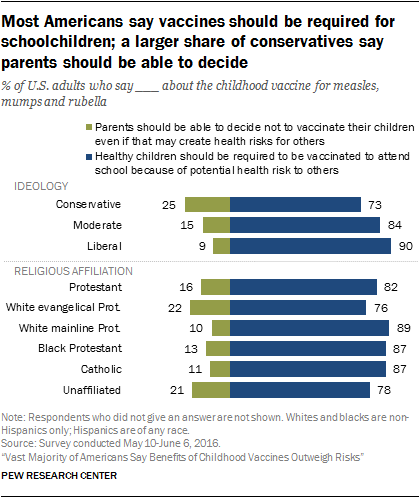Publisher’s Riff

by Charles Ellison | #RealityCheck | @ellisonreport
It seems like a page ripped out of a pre-apocalyptic sci-fi thriller that Americans would be having urgent conversations about measles outbreaks nearly 20 years after that disease was virtually “eradicated,” per the Centers for Disease Control (CDC), in 2000. However, it’s now actually non-fiction and, yes, we are in 2019 having urgent conversations about and being frightened by slow burning measles outbreaks that could grow from bad to worse if not put in check quickly. Already there is a 300 percent rise in global cases, according to the World Health Organization, and “Patient Zero” stories of unvaccinated persons putting everyone else around them at risk are popping up with more frequency.
The funny and most troubling thing about that is how our politics, perhaps, have more to do with it than we’re letting on. Americans are probably hoping for a more robust response from federal public health officials, but the problem is that individuals running the federal government are either more likely to believe in unscientific claims that vaccinations cause autism or they are aligned with ideological interests more likely to believe such. Remember back in 2017 at the start of the Trump administration …
President-elect Donald Trump’s skepticism about the safety of childhood vaccines contrasts not only with the scientific consensus, but also with the opinions of Americans ― fewer than one-quarter of whom think immunization should be a matter of personal choice.
By a more than 2-1 margin, 54 percent to 26 percent, Americans say that the science supporting the safety of childhood vaccination is “indisputable,” rather than something that requires future debate, a new HuffPost/YouGov survey finds, although partisan divides on the issue are widening.
Two-thirds of Americans say that the issue of vaccinating children is a matter of public health, with just 24 percent considering it a matter of personal choice. A 56 percent majority of those polled say they have at least a fair amount of trust in the government to set vaccination policies.
Back then - just two years ago - that was still a rather low percentage of Americans believing the pro-vaccine science; and a disturbingly high percentage that either believed it was “disputable” or was “not sure.” And so the trend line in the growth of measles outbreaks since 2016 is not surprising in that sense …

The first year of the Trump administration and the opening of a new phase in toxic partisanship and open white nationalist bravado (most typically associated with conspiracy theories) saw a 210 percent spike in the number of measles cases. There has already been a nearly 50 percent increase since 2018, and with there being 555 cases in 2019 so far, one can only imagine what the rest of the year might look like.
But, the correlation between the rise of measles infections and the first years of the Trump administration is a fairly stark one. This is what a sizable chunk of Trump voters believed or claimed in a little over a month away from his historic win …

And, as Pew shows , it greatly depends on the political interests and alignment



